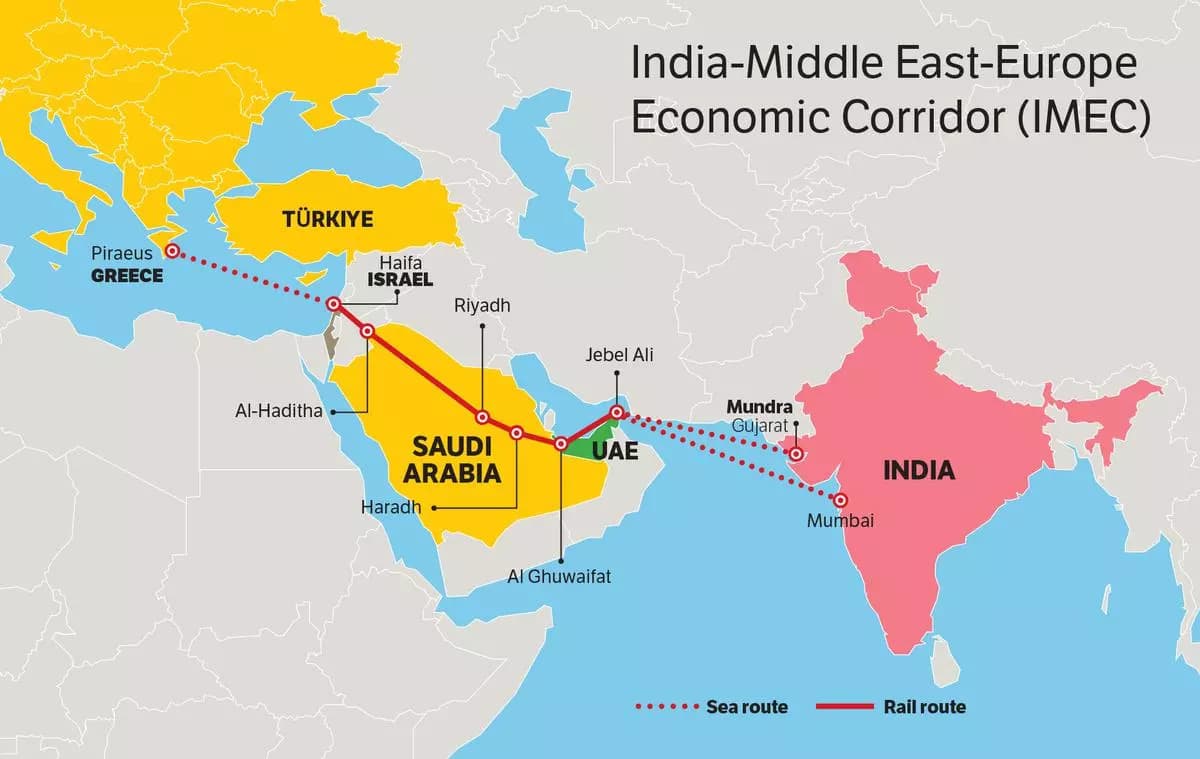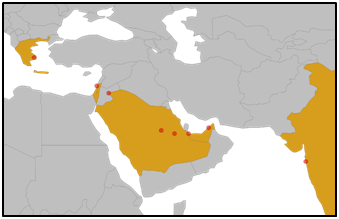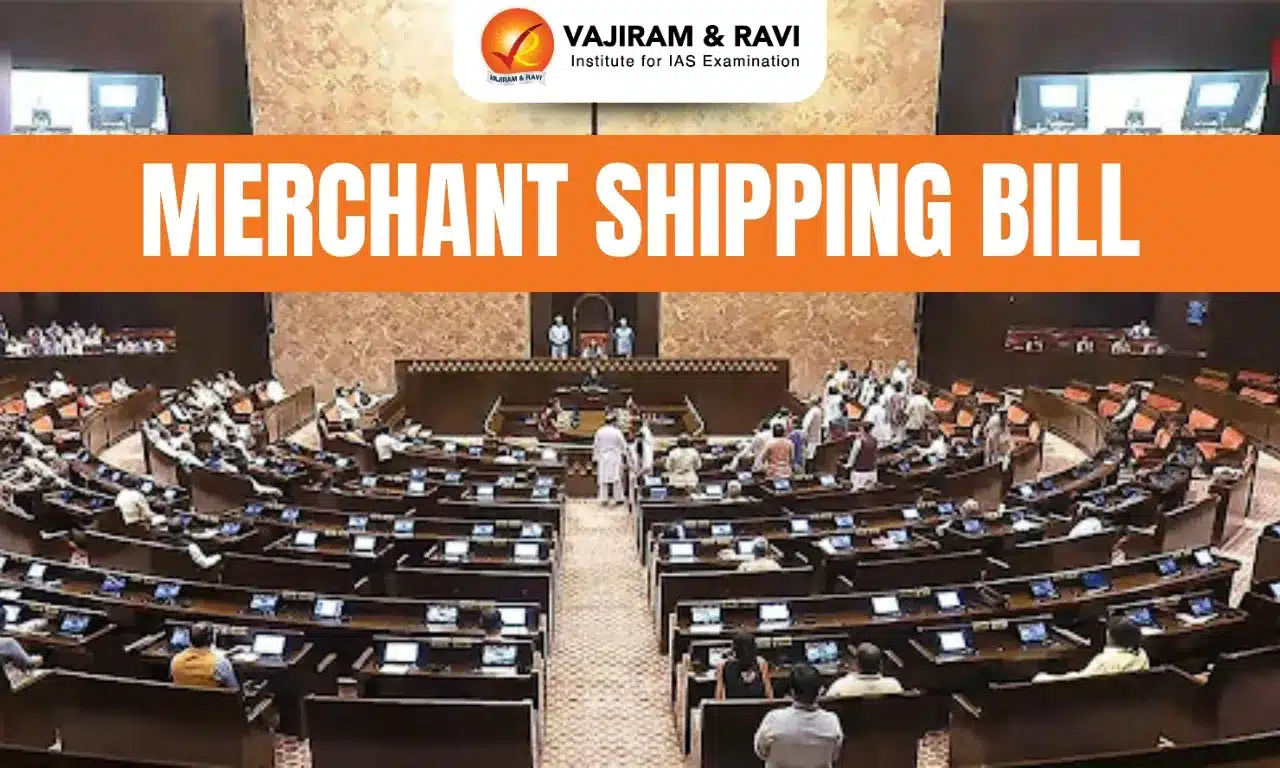What’s in Today’s Article?
- Why in the News?
- About India-Middle East Europe Economic Corridor (IMEC)
- Significance of IMEC Project
- Role of IMEC in Improving Israel & Gulf Countries’ Relationship
- Impact of Israel-Palestine Conflict on IMEC Project
Why in the News?
- According to a report by the Georgia Tech Research Institute (GTRI), Israel-Palestine war could derail the prospect of a historic peace deal between Israel and Saudi Arabia, a crucial linchpin in the India-Middle East Europe Economic Corridor (IMEC) framework.
About India-Middle East Europe Economic Corridor (IMEC)
- At the sidelines of the G20 Summit held in New Delhi in September 2023, an MoU was signed to develop a rail and shipping corridor connecting India to Europe via the Middle East between India, United States, Saudi Arabia, the United Arab Emirates, France, Germany, Italy, and the European Union.
- The proposed IMEC will involve:
- Rail connectivity,
- Shipping lines,
- High-speed data cables, and
- Energy pipelines.
- These will complement the existing maritime and road networks that will enhance movement of trade and services “to transit to, from, and between India, the UAE, Saudi Arabia, Jordan, Israel, and Europe.”
Significance of IMEC Project
- IMEC is significant from an infrastructure and connectivity perspective as well as from a geopolitical angle.
- The project involves two separate corridors –
- East Corridor: connects India to the Arabian Gulf, and
- Northern Corridor: connects the Arabian Gulf to Europe.
- According to the MoU, IMEC is “expected to stimulate economic development through enhanced connectivity and economic integration between Asia, the Arabian Gulf, and Europe.”
- The new corridor has other important dimensions, including reliable and secure regional supply chains, better trade accessibility, and trade facilitation.
- In geopolitical terms, IMEC is touted as a counter to China’s Belt & Road Initiative (BRI).
- India, from very early days, had objected to it because the China-Pakistan Economic Corridor, a key component of the BRI, runs through territories claimed by India.
Role of IMEC in Improving Israel & Gulf Countries’ Relationship
- Saudi Arabia and Israel do not have diplomatic ties —primarily because of differences of opinion about the Israel-Palestine conflict.
- In fact, Israel has official ties with only Egypt, Jordan, the UAE, Bahrain and Morocco in the Arab region.
- In this light, the transit network which seeks integration on multiple fronts assumes particular significance.
- The corridor’s passage through Jordan and Israel could support the US administration’s effort to build on the recent normalisation of ties between Israel and several Arab states, including the UAE.
- This may push Saudi Arabia to follow suit and formalise ties with Israel.
Impact of Israel-Palestine Conflict on IMEC Project
- With the ongoing Israel-Hamas conflict intensifying, there is a growing realization that the kind of diplomatic cooperation a project like IMEC would have warranted as a prerequisite, is far more complicated now.
- The Saudi Arabia – Israel peace deal might not be a possibility in the near future now as mounting anger in the Arab world about the scale of Israel’s offensive in northern Gaza.
- US President Joe Biden’s planned visit in Jordan this week had to be cancelled after an attack on a Gaza hospital.
- A rocket launched near Iraq’s Baghdad International Airport added to a rising number of attacks targeting US forces in the Middle East.
- While the war’s direct impact remains regional, the geopolitical consequences reverberate far beyond, with potential consequences for the proposed IMEC corridor.
Q1) When was the state of Israel established?
On May 14, 1948, David Ben-Gurion, the head of the Jewish Agency, proclaimed the establishment of the State of Israel.
Q2) How many countries are members of the OIC?
The Organisation of Islamic Cooperation founded in 1969 has 57 members, 56 of which are also member states of the United Nations, with 48 countries being Muslim majority countries.
Source: Israel-Hamas war may pose hurdles to India-Middle East-Europe Economic Corridor: Report | ORF
Last updated on July, 2025
→ UPSC Notification 2025 was released on 22nd January 2025.
→ UPSC Prelims Result 2025 is out now for the CSE held on 25 May 2025.
→ UPSC Prelims Question Paper 2025 and Unofficial Prelims Answer Key 2025 are available now.
→ UPSC Calendar 2026 is released on 15th May, 2025.
→ The UPSC Vacancy 2025 were released 1129, out of which 979 were for UPSC CSE and remaining 150 are for UPSC IFoS.
→ UPSC Mains 2025 will be conducted on 22nd August 2025.
→ UPSC Prelims 2026 will be conducted on 24th May, 2026 & UPSC Mains 2026 will be conducted on 21st August 2026.
→ The UPSC Selection Process is of 3 stages-Prelims, Mains and Interview.
→ UPSC Result 2024 is released with latest UPSC Marksheet 2024. Check Now!
→ UPSC Toppers List 2024 is released now. Shakti Dubey is UPSC AIR 1 2024 Topper.
→ Also check Best IAS Coaching in Delhi
















